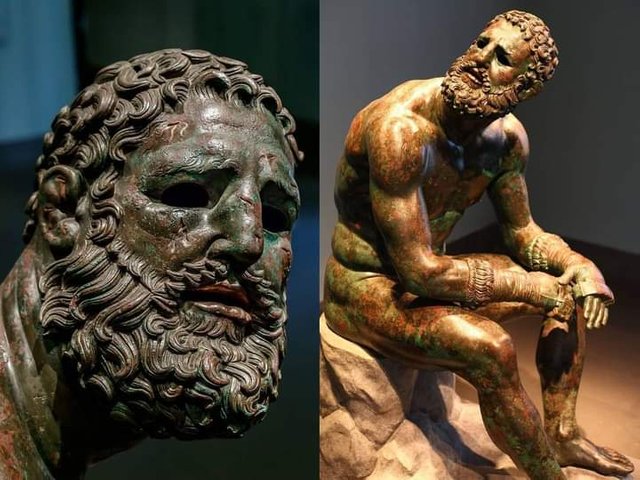
This is the "Boxer at Rest," one of the finest examples of bronze sculptures to have survived from the ancient world. Year: c. 330 to 50 BC
Breathtaking and heart-wrenching to look at, battered and beaten, with his wearily turned head, his palpable exhaustion and vivid musculature engulf you in his realism. The missing eyes and open mouth expose the hollow inside of the sculpture adding to the pain and pathos that pour from the figure.
Bruised but unbowed, the boxer is finally at rest, wreathed in a pensive calm as he sits hunched over with his arms resting heavily on his knees, lost in thought.
The Boxer was discovered in the foundations of an ancient building on Rome’s Quirinal Hill in 1885. Incredibly intact in its millennial hiding place deep beneath the city, the find took place near the site of the ancient baths of Constantine where it was conceivably once on display as a paean to male athleticism, brought to Rome from its native Greece as a spoil of war.